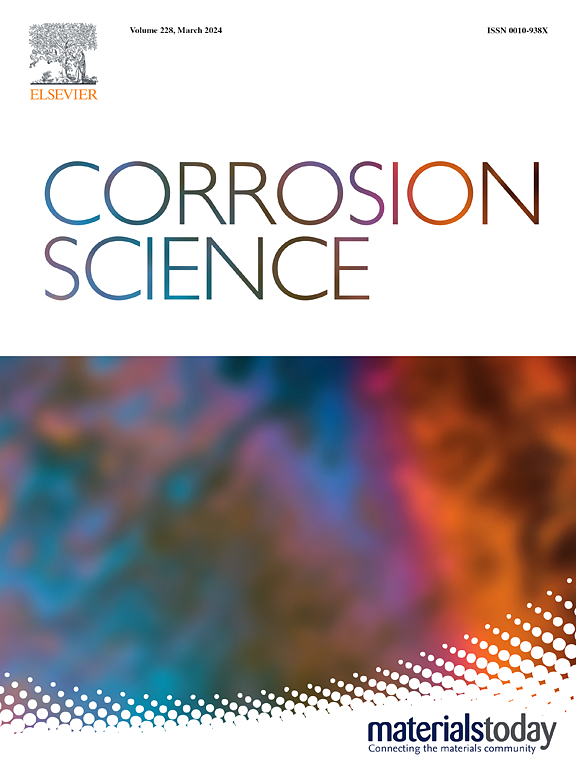H2S和H2对X80管线钢断裂力学性能的耦合效应:实验与DFT
IF 7.4
1区 材料科学
Q1 MATERIALS SCIENCE, MULTIDISCIPLINARY
引用次数: 0
摘要
在本研究中,我们通过几种不同的试验:疲劳裂纹扩展试验、断裂韧性试验和密度泛函理论(DFT)计算,探讨了干硫化氢(H2S)对X80管道钢氢脆敏感性的影响。结果表明:在12 MPa氢(H2)中加入3.952 ppm H2S,可略微增强X80钢的氢致疲劳和断裂性能退化;当H2S含量增加到19.76 ppm时,材料的降解变得严重。断裂面观察表明,与氢气相比,H2S对试样的断裂模式没有明显改变。DFT定性计算表明,H2S增强了铁表面对氢的吸附,提高了铁在地下的溶解速率。这一过程促进了氢气在材料中的积累,从而增加了管道钢的氢脆。本文章由计算机程序翻译,如有差异,请以英文原文为准。
Coupling effect of H2S and H2 on the fracture mechanical properties of X80 pipeline steel: Experiment vs DFT
In this study, we explored the effect of dry hydrogen sulfide (H2S) on the hydrogen embrittlement sensitivity of X80 pipeline steel through several different tests: fatigue crack growth tests, fracture toughness tests, and density functional theory (DFT) calculations. The results showed that the addition of 3.952 ppm H2S into 12 MPa hydrogen (H2) slightly enhanced the hydrogen-induced degradation of the fatigue and fracture properties of the X80 steel. The degradation of the material became severe when the content of H2S increased to 19.76 ppm. Fracture surface observations indicate that H2S does not significantly change the fracture mode of the specimen compared to that in hydrogen gas. DFT calculations qualitatively reveal that H2S enhances the hydrogen adsorption on iron surface and the dissolution rate into the subsurface. This process promotes the accumulation of hydrogen in the material, thereby increasing the hydrogen embrittlement of the pipeline steel.
求助全文
通过发布文献求助,成功后即可免费获取论文全文。
去求助
来源期刊

Corrosion Science
工程技术-材料科学:综合
CiteScore
13.60
自引率
18.10%
发文量
763
审稿时长
46 days
期刊介绍:
Corrosion occurrence and its practical control encompass a vast array of scientific knowledge. Corrosion Science endeavors to serve as the conduit for the exchange of ideas, developments, and research across all facets of this field, encompassing both metallic and non-metallic corrosion. The scope of this international journal is broad and inclusive. Published papers span from highly theoretical inquiries to essentially practical applications, covering diverse areas such as high-temperature oxidation, passivity, anodic oxidation, biochemical corrosion, stress corrosion cracking, and corrosion control mechanisms and methodologies.
This journal publishes original papers and critical reviews across the spectrum of pure and applied corrosion, material degradation, and surface science and engineering. It serves as a crucial link connecting metallurgists, materials scientists, and researchers investigating corrosion and degradation phenomena. Join us in advancing knowledge and understanding in the vital field of corrosion science.
 求助内容:
求助内容: 应助结果提醒方式:
应助结果提醒方式:


